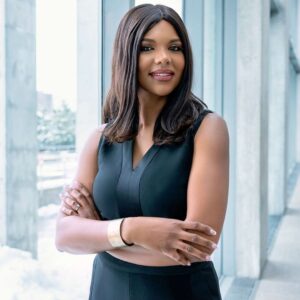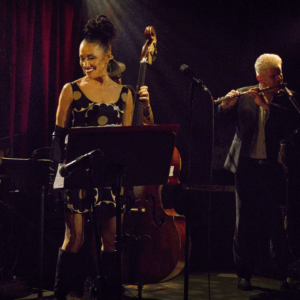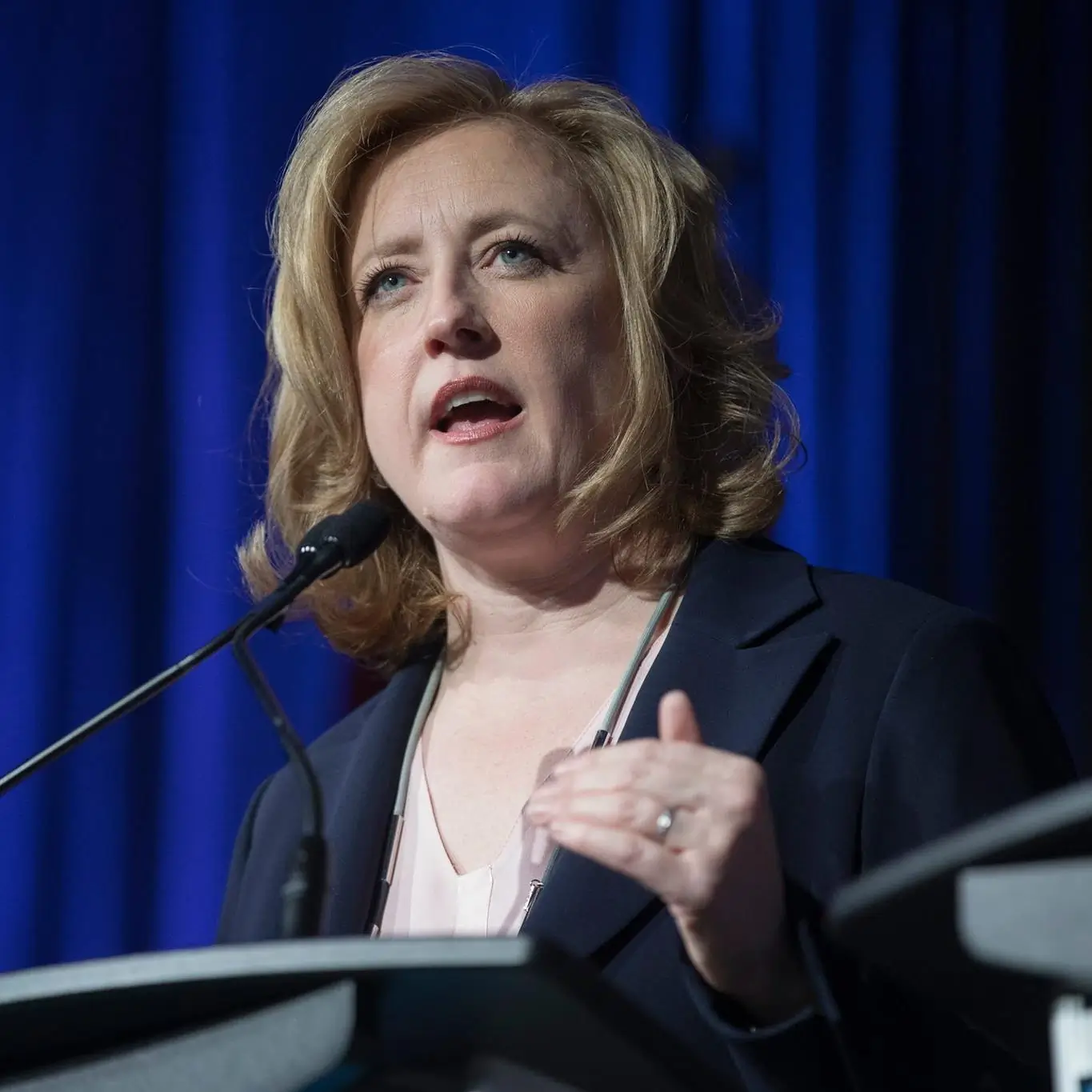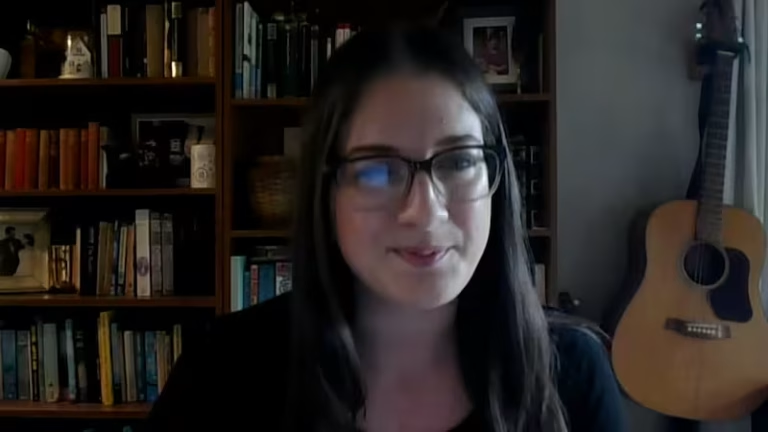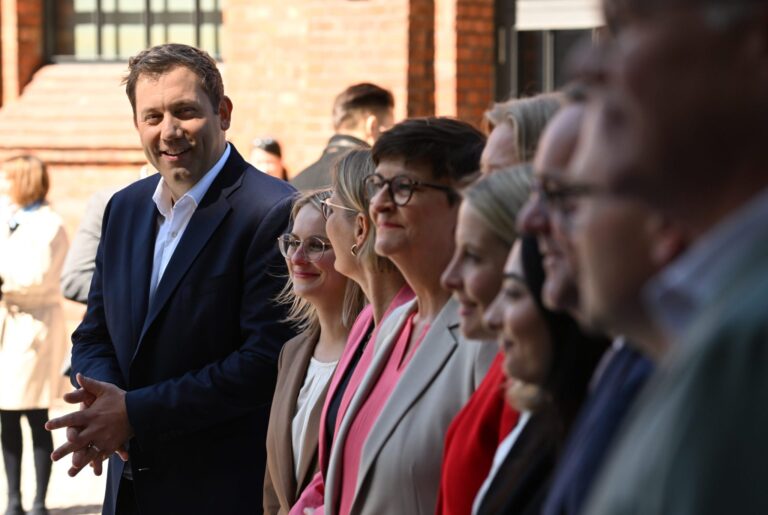From prison psychologist to Canadian Ambassador: Inside Marcy Grossman’s incredible career journey
Today on the podcast, we’re joined by a truly fascinating guest — Marcy Grossman, Canada’s first female Jewish ambassador to the United Arab Emirates. Marcy’s career in diplomacy is impressive on its own, but what makes her story even more compelling is where it began — in a jail. And no, not in the way you might think.
We first met Marcy in Montreal and were immediately struck by her honesty, humour, and the bold way she’s carved out her own path. In this episode, she opens up about her unconventional journey, from working in corrections to navigating the world of foreign affairs — and all the pivotal moments, pressures, and personal reinventions along the way.
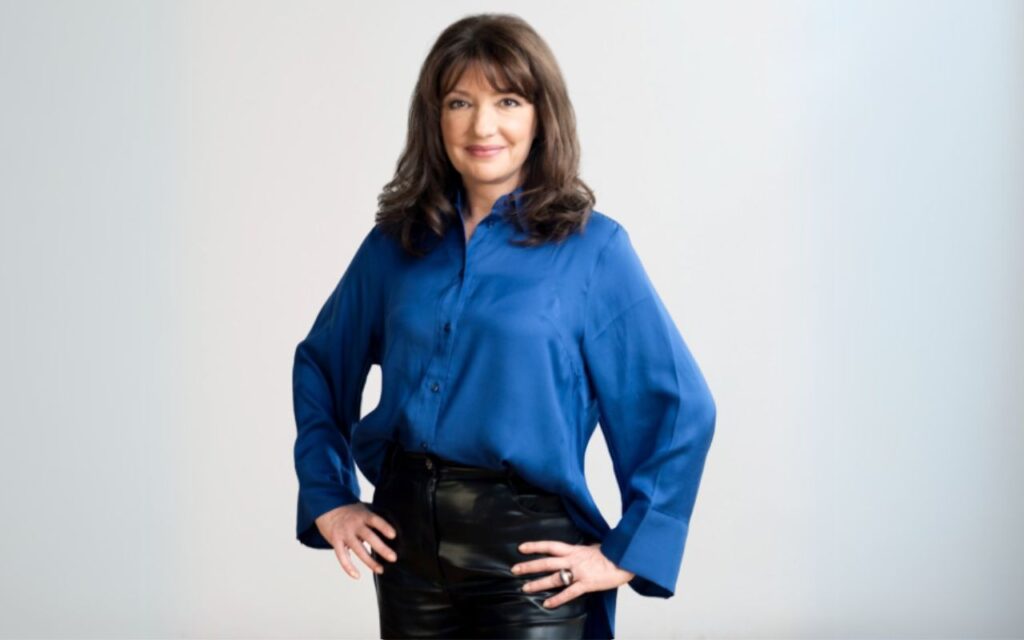
Catherine Clark: When we first got to meet you – actually in Montreal – we were all three of us speaking at an event. Jen and I were just so impressed by your presentation of a really remarkable life. The theme of it was be your own ambassador, and you have had such an interesting career within Canada’s diplomatic corps. You’ve been representing the country in some of the world’s really high-level diplomatic spaces, often male-dominated. It would be really interesting to hear from you about some of the most significant barriers you faced, especially right at the beginning, and how you navigated through them to get to the top.
Marcy Grossman: Great, thank you. Well, surprise, surprise – 75% of all careers that women follow are male-dominated, so I don’t know that being in diplomacy was any real exception. And of course, I did not start my career in diplomacy. I am a criminal psychologist by training. I have a master’s degree in criminal psychology, and I began my career in jail – so that was also kind of a tough place for a woman to start a career.
But I’d have to say that I was fortunate in that I was part of a generation that was breaking a lot of new barriers. We were basically crashing glass ceilings and moving together as a cohort as we went through these different jobs.
So, for example, when I started in federal corrections back in the day, very few women were permitted to work as correctional officers. We were not deemed to be tough enough, strong enough – whatever enough. That was a barrier that was crashed during my time, and it allowed women to enter the workforce more operationally. Now, for example, there’s a woman who heads the Department of Corrections and a woman who heads the National Parole Board.
So, I think at the time I entered both corrections and diplomacy, the barriers had been broken by women ahead of us who had led the way. A whole cohort of us came through.
If I look at diplomacy as another example – in 1976, the cohort that would have come before me had to quit. Women had to quit their jobs. They were lucky enough, first of all, to be Foreign Service officers, but they had to quit when they got married. Why was that? Well, first of all, it was deemed that their husbands would not follow them on diplomatic postings, so we’ll just call the whole thing off. Ultimately, it was also deemed that women have problems balancing two things at the same time – like marriage and work. That barrier only got busted in 1976, which allowed a whole new cohort of women to walk through the door. So I think I was really fortunate in both those events.
Jennifer Stewart: Marcy, how did you go from being in jail – and full disclosure, you weren’t actually in jail, you were working in the jail system, just so our listeners are clear – although that…would be a juicy element!
Marcy Grossman: Well, I do like to tell people they let me out of jail to do this job of diplomacy. But yeah, as I said, I began my career in federal corrections, and that was my first passion. I wanted to be a criminal psychologist from the time I was 16. I studied to be that. I wanted to work in the big house – it really was a vision, it was my dream. I was living my dream. I wanted to save the world one offender at a time, and I loved it. It was my number one passion.
But as I got further away from the content of that job and into middle management, different opportunities presented themselves. One of them was an executive training program I was nominated for. It allowed me to change my job every year, get exposure to different federal government departments, and gain different management and leadership experience. At the end of the five-year program – which also included some educational modules – the goal was to graduate to the executive cadre.
I left corrections not really knowing where I was going to end up. Probably, I was going to come back to corrections. I went to the Treasury Board, I went to Industry Canada, and I’d always wanted to do something international in that fifth and final assignment of the program.
But when I got to the fifth year, I couldn’t navigate it. I knew it was something like “help Kosovo rebuild the criminal justice system,” or “go to Bosnia,” or something like that, but I just couldn’t convert that into a one-year assignment. So I basically just surrendered to the universe and the job market.
The next opportunity came when a woman called and invited me to do a one-year status at Investment Partnerships Canada – a small, tiny unit within the government. I had no idea what Investment Partnerships Canada was. She mentioned something international, and I said, “Fine, I’ll take it.”
Sure enough, when I got there, it was a tiny unit co-managed by Industry Canada and the Department of Foreign Affairs. That’s when I realized: OMG – I am in the Department of Foreign Affairs. And that’s also when I realized: I am nevergoing back to jail.
Jennifer Stewart: I just wanted to talk about one thing that struck me when we saw you speak in Montreal – and you were just fabulous – was that you talked about a period before going into diplomacy where you experienced burnout. Can you talk to us about that experience, how you took care of yourself, and what you adapted so it wouldn’t happen again?
Marcy Grossman: Right. So the part I missed out of that radical career transformation story was the several months of what we called in the day a “nervous breakdown” that I had before getting that position.
As I explained, I was on the fast track. I was being prepared and groomed for senior management, and I was working really hard – like most women do – every single day. I had two children under five. My husband at the time was an entrepreneur, so I was solo parenting. I was doing all the things that every woman does – get the kids ready for school, get to work, look presentable, deliver all day, come home, spend time with the kids, put them to bed, open the briefcase, finish more work, fall into bed at midnight. Rinse and repeat.
That was going okay – or at least, I was telling myself it was. But I was actually running on fumes. And it wasn’t until something dramatic happened that really brought me to my knees.
In my manic, high-performing, ultra-human state, I decided to take my executive exams a year early. The executive exams were a two-day psychological assessment at the Public Service Commission. You would role-play a scenario – like being the head of a national park – for two days, with actors and assessors evaluating how you handled different situations.
I thought I aced it. I was in superpower mode. But two weeks later, the results came. I told my boss, “My results are here – I’m super amazing!” He said, “Why don’t you open them in your office?” I opened them. I failed. Not just failed – destroyed failed.
It was such a blow. Such a crash. It was the straw that broke the camel’s back. I fell into utter disrepair – depression, anxiety – I had to be almost carried out of the office. I didn’t recover for four months. It took that long to get help, to get to the root cause, to figure things out. That’s been a lifelong challenge: unraveling why you do certain things.
Eventually, I took that job at Investment Partnerships Canada because I just didn’t have the strength to create anything international. I took the next friendliest voice on the phone. She sounded kind – and that’s all I needed. I returned to work four days a week. Back then, if you were on a reduced schedule, you were considered a failure. I said, “Well, I’m going to prove you wrong about that.”
Catherine Clark: I love that story. And I love your courage in being so open about sharing it. I’d bet a lot more women have gone through something similar but don’t talk about it because they’re afraid of how it might affect their careers. What advice do you have for women going through the same thing? What did you learn about yourself?
Marcy Grossman: A few different things. First of all – this is more for parents – let your kids fail often and fail early. Failure is a muscle. You’re always learning when you fail.
I didn’t fail a lot as a kid. I had a charmed existence, so when I had my first real failure – late 30s – it was crushing. Now, I don’t care. I’ll try anything and fail. You break down and you break through. It’s amazing because you carry those lessons forward.
When I speak to women now, I tell them: There’s no job you can’t have. Impossible is possible. Women today can do anything. Be a Prime Minister. Go to the moon. Anything. Don’t shortchange yourself.
But here’s the fix: You can have it all, just not all at the same time. It’s not possible. We try to compress our 40-year careers into the 20 years between 25 and 45. That’s when we’re expected to do everything – build careers, raise kids. It’s not our fault that our best childbearing years are also our best earning years. But it’s a recipe for disaster.
And women have 90% more caregiving responsibilities than men – housework, child care, aging parents, planning vacations. That’s another full-time job.
So my advice? Take your time. Stretch your career out. Live your life. Enjoy your kids. They’ll turn on you eventually – get those snuggles in now!
Catherine Clark: What was it like to be the first female Jewish ambassador to the UAE? Because that’s a crazy leap – and such an impressive one too
Marcy Grossman: Thank you. Yes, it was a series of very fortunate events.
After I recovered from my nervous breakdown, I went back to work – working in Investment Partnerships Canada. Eventually, I found myself at the Department of Foreign Affairs.
At the time, there were two pilot projects running – Investment Partnerships Canada, which is now Invest in Canada, the agency responsible for attracting foreign direct investment. One of the pilot projects was in Dallas, Texas. My husband at the time had always wanted to live in Dallas, so I aligned myself with that project. I got to choose my job once I got there.
A few weeks in, they called for volunteers to go to Dallas because Prime Minister Chrétien was coming on his final Team Canada mission – Dallas and then Los Angeles. They needed someone to organize the investment roundtable because the investment officer in Dallas had suddenly left. I said, “I’ll go.”
They were like, “Who are you? You’re new, an outsider. You don’t even know what you’re doing.” And I said, “I can get on that plane tomorrow. Can anyone else here say that?” And no one could. So they said, “Fine. Send the new girl.”
That’s how I turned a one-year term into a two-week assignment and then into a permanent posting in Dallas a month later. I just kept putting my hand up – for the things no one wanted to do. That’s how I built a reputation: doing impossible things no one else wanted.
For that roundtable, I had two weeks to organize something for Prime Minister Chrétien, Gary Doer (Premier of Manitoba), and Ralph Klein (Premier of Alberta). I had no idea what I was doing – but neither did anyone else. I started cold-calling CEOs: “Hi, this is Marcy Grossman, calling on behalf of the Prime Minister’s Office. Would you like to join a lunch next Thursday?” I got 12 people. It was a huge success.
After the event, I went to the Consul General and said, “I hope you think I did a great job. I love it here. I know you’ve got a vacancy – let me fill it. I can start now.” Sure enough, he let me. Three months later, in February, my husband and I sold everything and moved our kids to Dallas.
Jennifer Stewart: What was it like working in the UAE? And what surprised you about taking on such a big and important role?
Catherine Clark: Yeah, and to add to that – Jen and I were really struck by this. It’s one thing to work in a culture that’s more or less like ours, like in the U.S. But in a country with such a different approach, especially toward women, what was that like?
Marcy Grossman: Honestly, I had more culture shock going to Dallas than going to Dubai. And I’m not joking. I hadn’t anticipated how different American life was from Canadian life.
That said, the UAE was of course extremely foreign to me. I had traveled a bit in the Middle East but wasn’t prepared for what I found. I landed in Dubai as Consul General. One year later, I got a surprise promotion to Abu Dhabi.
Getting off the plane in Dubai was like landing in outer space. The creativity and development they built out of a pile of sand was stunning. I couldn’t have imagined a more modern, vibrant city. But I’ll be honest – I worried someone would figure out I was Jewish and say, “Oops, wrong job. Please turn right instead of left.” I thought it was a bold move by Canada to send a Jewish woman to Dubai – and I was impressed that the UAE, who never leave anything to chance, obviously knew and still welcomed me warmly.
And the women – our preconceived notions about women in the UAE are so off. Women in shaylas, with their heads covered – we assume so much about their lives, what they’re allowed to do. It’s 100% a misconception.
The women of the UAE are kicking butt. They’re well-represented in government, over-represented in higher education, and leading in science. The UAE launched a Mars mission while I was there, and it was led by a woman – with a mostly female team. These women were like me – working moms doing hard jobs and thriving.

